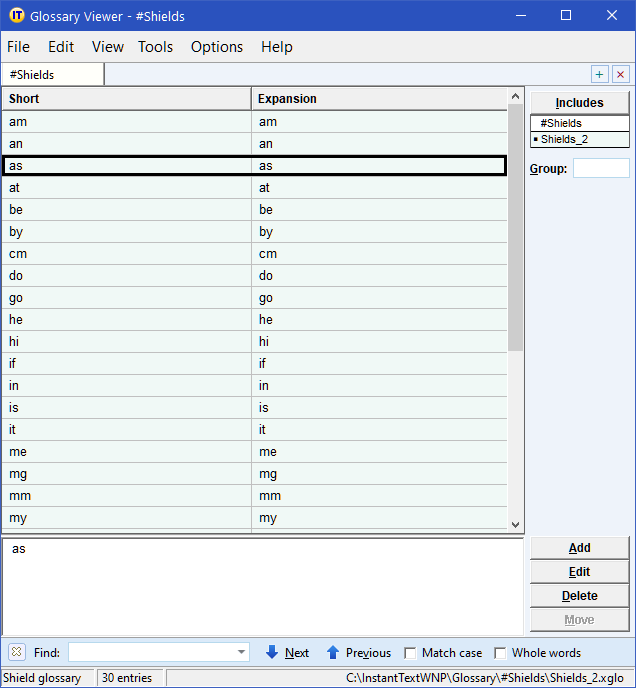Shield Glossary
A Shield Glossary defines a set of expansions where the expansion matches the short form.
You may wonder what is the point? These expansions are there to prevent unwanted expansions for those who use Phrase Expanders, for example the space bar. If you are using exclusively Marker keys to expand, you may as well skip this page.
An example is probably the best way to show how it works.
Imagine you have the following
glossary entry
in your
Current Glossary:
| Short | Expansion |
|---|---|
am |
a.m. |
You will be able to type 8 am and get 8 a.m., sparing the 2 keystrokes for the periods.
Very practical for typing times.
On the other hand, if you want to type I am happy, you will be rather unhappy if you end up with I a.m. happy!
To avoid this you need the following shield:
| Short | Expansion |
|---|---|
am |
am |
The Shield Glossary Shell
The Shield Glossary Shell is the Shield Glossary that contains all active shields: in order for a Shield Glossary to be active, it needs to be included in the Shield Glossary Shell.
To protect you from unwanted expansions, Instant Text always includes the Shield Glossary Shell at the top of your current glossary so that the shields are always displayed at the top of the Phrase Expansion Table:

Hence you can type am followed by a space, without fearing to end up with an unwanted expansion.
To expand am into a.m., use the line number selection and type am followed by the digit 2 and a space.
The Shield Glossary Shell has a fixed location and a reserved name: Glossary\#Shields.xglo
Viewing the Shield Glossary Shell
You can view and edit the Shield Glossary Shell in the Glossary Viewer using the View Shield Glossary menu item in the Glossary Menu.

The Shield Glossary Shell comes with entries for short words such as we, as, is, on, of... You should add all small words, that you end up using also as an expansion short form. Thereby you will avoid unwanted expansions.